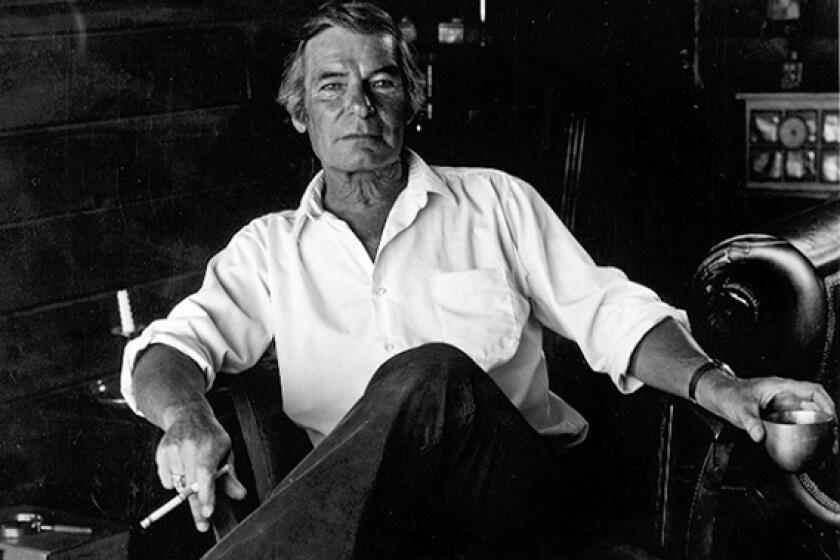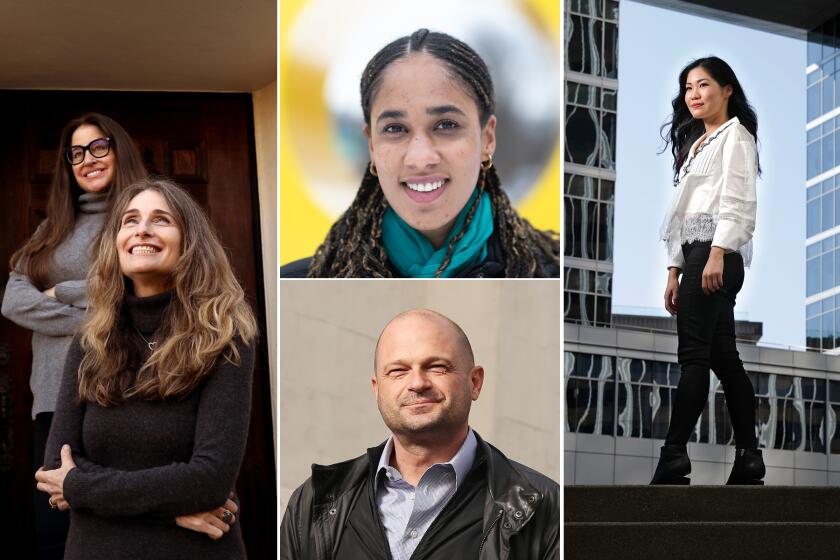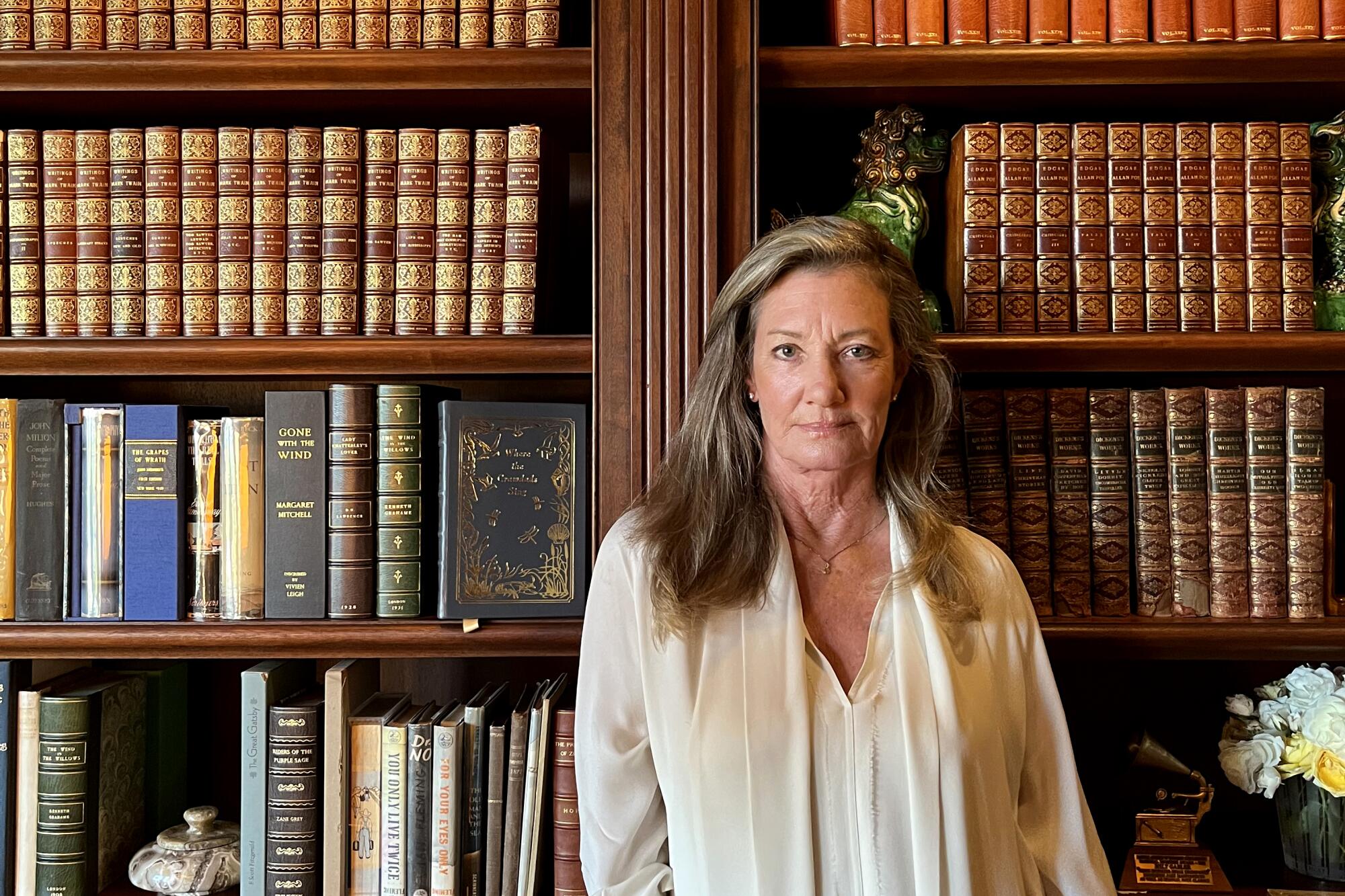
- Share via
Delia Owens’ book “Where the Crawdads Sing” is just a dragon short of a genre fiction compendium: children’s survival tale, young adult romance, murder mystery and legal thriller. Anyone who thought “To Kill a Mockingbird” needed a happier ending, or wished Boo Radley were a neurotypical love interest, has likely embraced Owens’ novel. Now Sony is aiming its adaptation of “Crawdads” squarely at the book’s myriad readers with a Walmart promotion, a Taylor Swift song and themed home décor on Instagram. By its own standards, it should be a success: The movie achieves its goal of re-creating the story’s central drama and fairy tale atmosphere.
If none of the above appeals to you, you’re probably not in the “Crawdads” demographic. Maybe your taste in wetlands-girl stories runs toward the outré humor of Karen Russell’s novel “Swamplandia!” and Kelly Reichardt’s film “River of Grass” (I can relate). No matter: Owens’ novel has sold on par with fellow sleeper hit “Fifty Shades of Grey,” and an adaptation has been in the works from the start. Yet the “Crawdads” production is unique in a way that may not be obvious: It’s the inaugural release from Elizabeth Gabler’s label 3000 Pictures. The company is the first joint partnership of a studio and a publishing house, Sony and HarperCollins.
Gabler, an omnivorous reader, is perhaps the leading champion of the book-to-film pipeline. “It gives you a foundation, it gives you great characters, it gives you author recognition, it gives you a built-in fan base,” she says of adapting books. She co-founded the first studio literary department with Drew Reed in 2003, while leading the Fox 2000 division (biggest hit: “Life of Pi”). Today it’s standard practice for studios to have book scouts on staff.
Changes in TV, film and book publishing, including the pandemic, have driven a boom in book adaptations. Here’s a guide to the pipeline.
“They’re really part of our whole creative engine,” Gabler said of Reed and his team. “They’re always looking out for material. They’re in London right now, meeting with publishers, editors, writers, agents, everybody. They go to all the book fairs; they go to librarians’ conventions.”
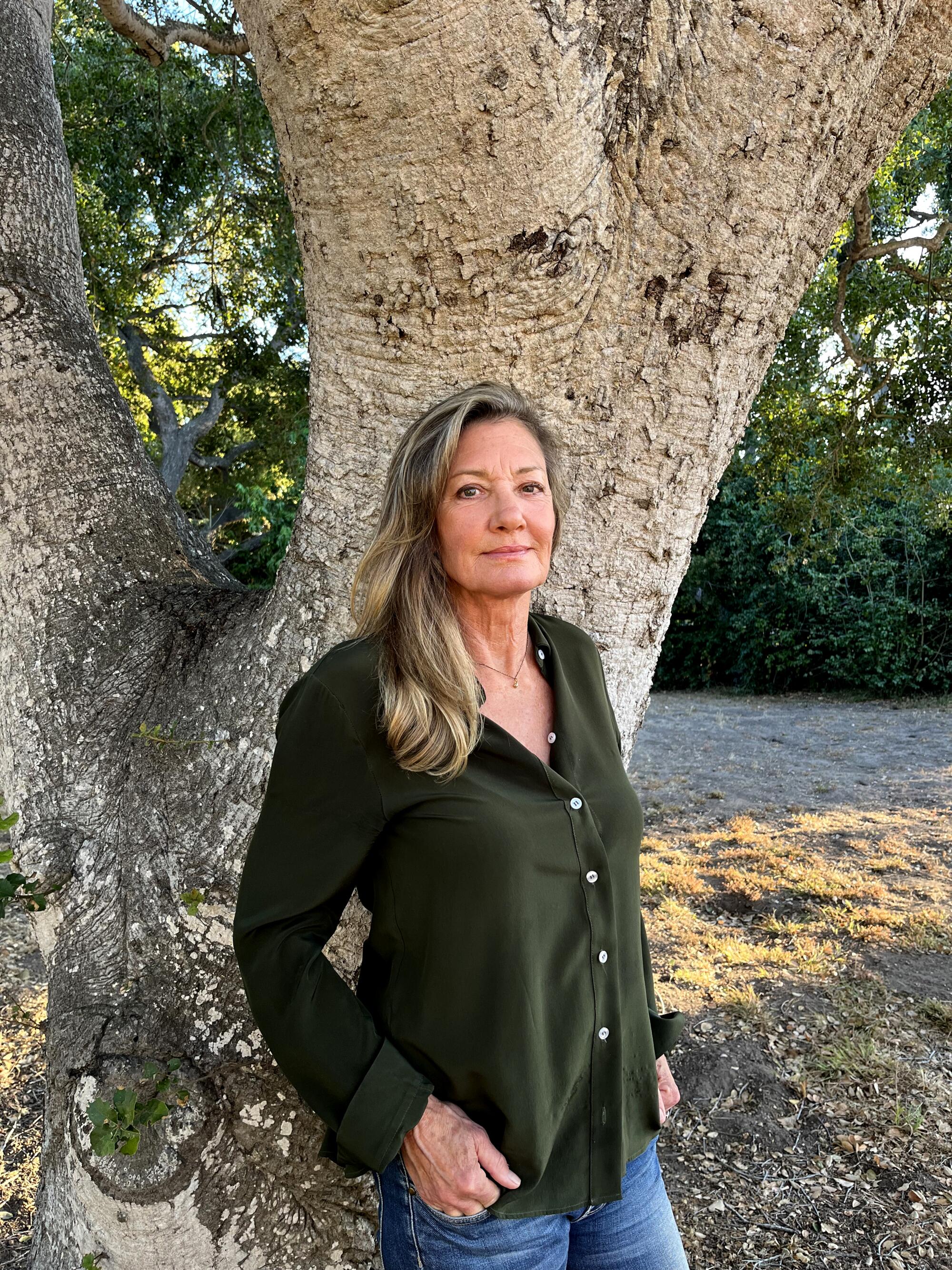
Having left 20th Century Fox after its sale to Disney, Gabler and her colleagues are writing a fresh chapter at Sony with 3000 Pictures. Currently, the label is developing Kazuo Ishiguro’s acclaimed AI novel “Klara and the Sun” — which it optioned before the book’s release, in conjunction with Heyday Films. 3000 also has a streaming version of “Lady Chatterley’s Lover” in postproduction, a collaboration with Netflix that should appear online later this year. It’s only the beginning for 3000, which launches with “Crawdads” set to open this week.
When Putnam (an imprint of Penguin Random House) released “Crawdads” in 2018, Reese Witherspoon’s lifestyle-and-production company Hello Sunshine chose the novel for its monthly book club. The group was then adapting Witherspoon vehicle “Little Fires Everywhere,” which it had optioned before the book’s release and then named as a club pick.
Gabler was still at Fox when the “Crawdads” adaptation began to come together. Her experience had brought her into the orbit of both Witherspoon and Owens. She had worked with Witherspoon on several Fox 2000 films, and had previously worked on developing one of Owens’ books about her time in Africa as a zoologist. (It was never produced as a film, and ultimately became controversial for her family’s actions and attitudes toward Black Zambians — including possible involvement in a killing.)
Now, after reading “Crawdads,” Gabler asked Hello Sunshine if they had plans to adapt Owens’ novel. They didn’t — but they agreed to do it with Gabler. The team soon hired screenwriter Lucy Alibar, who had written the play that became “Beasts of the Southern Wild.”
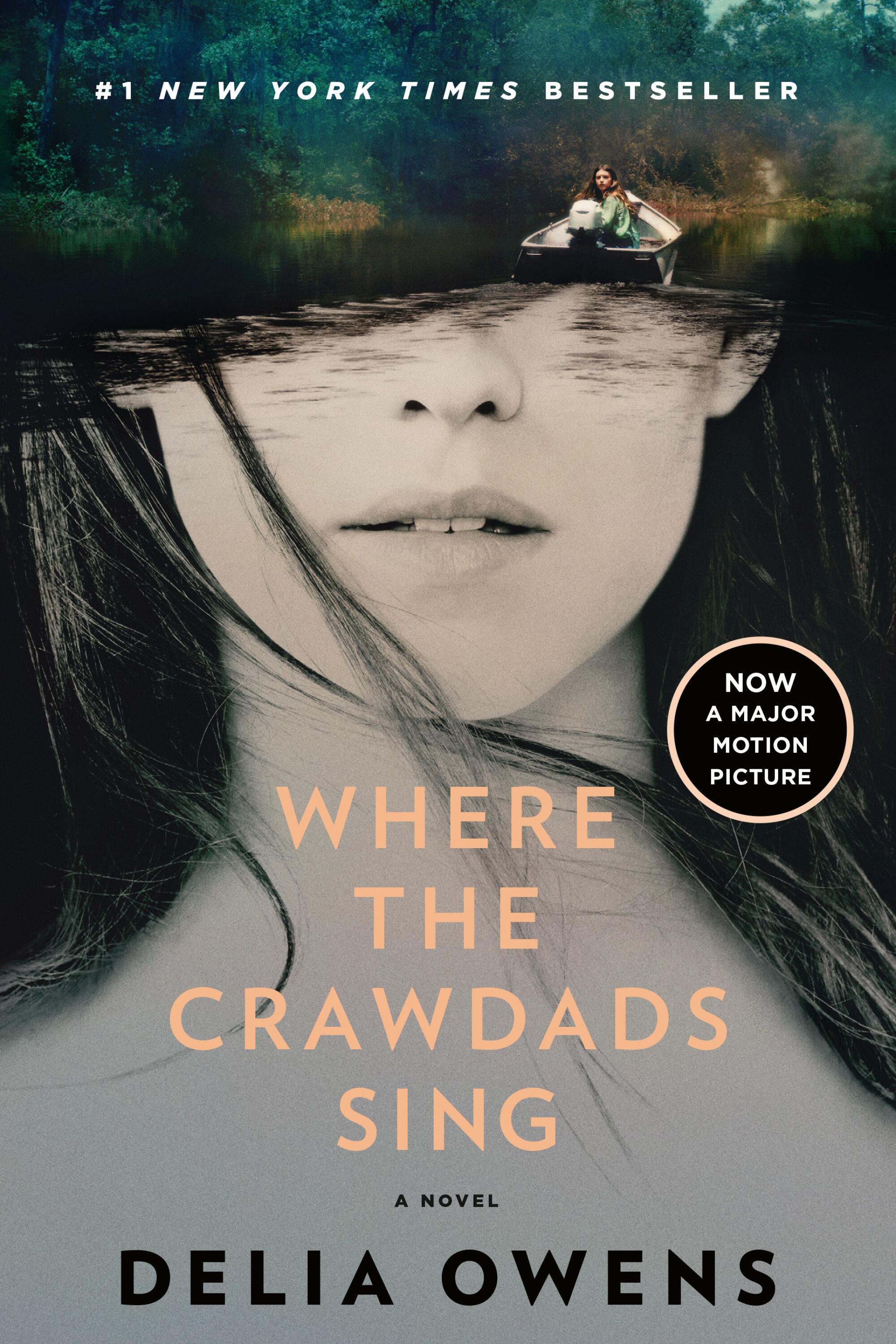
Then in 2019, Disney closed on its purchase of 20th Century Fox and dissolved Fox 2000. Gabler knew the leaders of HarperCollins well, having spent years together under the News Corp. umbrella. While there, she had adapted a number of the publisher’s titles, including “Hidden Figures,” “The Hate U Give” and “The Woman in the Window.” Gabler took off for Sony and teamed up with HarperCollins. It remains a flexible arrangement; other studios and Sony divisions still option HarperCollins books and 3000 can look elsewhere. But the label is jointly funded by the studio and the publisher and benefits from the expertise of both.
Many have failed to adapt Thomas Savage’s 1967 novel ‘The Power of the Dog.’ Jane Campion was perfect for it; both author and director deserve adulation.
By the time “Crawdads” became a 3000 Pictures project, the novel had topped the fiction sales charts. Its development continued apace — and then the pandemic hit.
The “Crawdads” squad moved to Zoom. Gabler, Witherspoon and their colleagues saw the film as a chance to elevate an early-career woman director; they met with many candidates. Olivia Newman may not have been an obvious fit. Her single feature, the searing “First Match,” which she also wrote, was a raw and gritty slice of urban realism. (Netflix picked it up after SXSW in 2018.) But Newman came with a special credential, Gabler explained: “She has young children, a young daughter and son, and we had young protagonists, the young Kya and the young Tate.” The children appear early in the film, abandoned by their mother and mistreated by their father in the isolated marsh cabin Kya will inherit. Newman, Gabler says, “was excellent with Jojo Regina” — who plays the young Kya — “and that was something that was really important to us.”
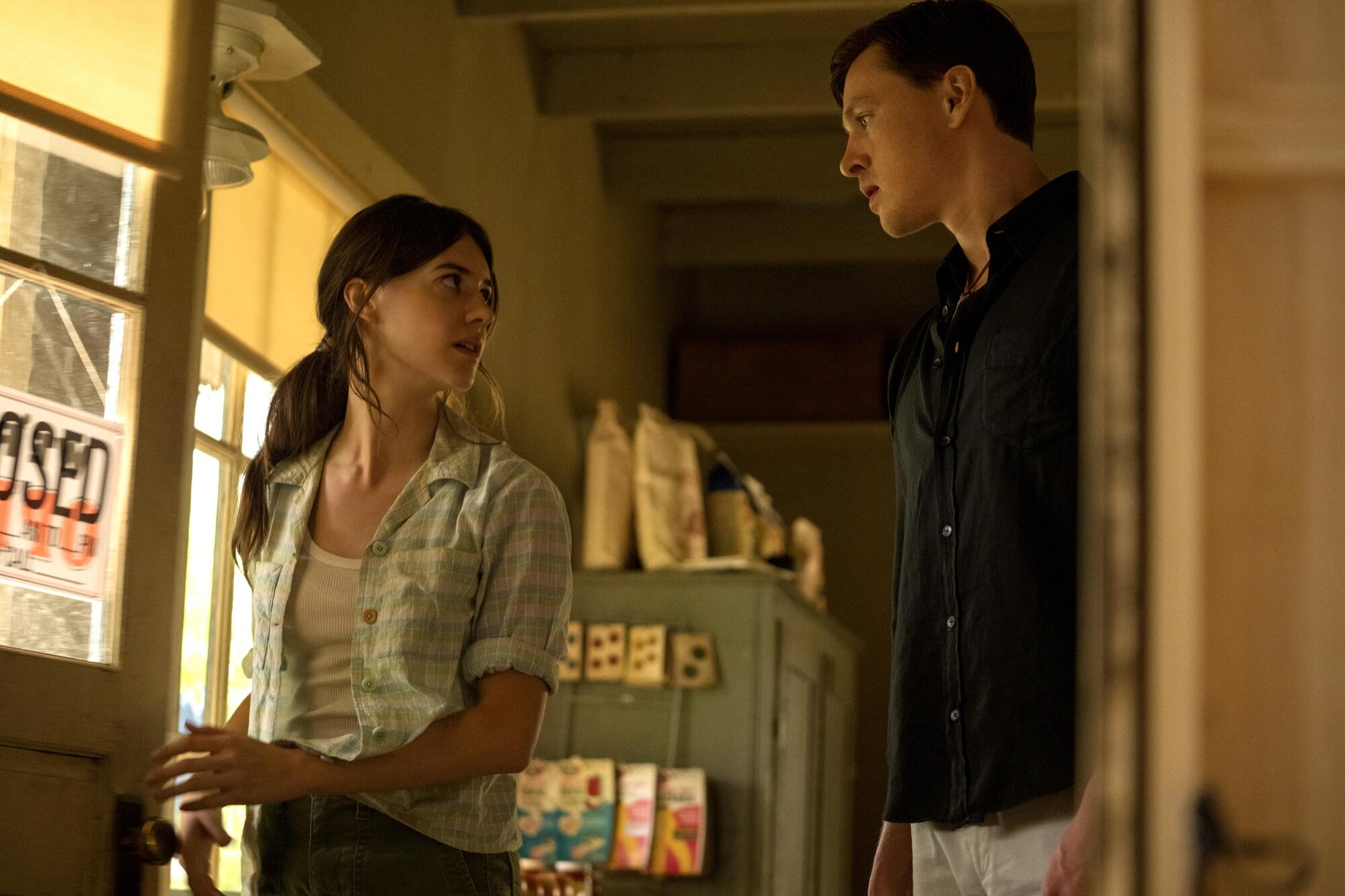
The film stars Daisy Edgar-Jones (“Normal People”) with Harris Dickinson as abusive boyfriend Chase, drawing on the masculine angst he brought to Eliza Hittman’s “Beach Rats.” David Strathairn plays Kya’s out-of-retirement attorney (never mind the expired law license — the book isn’t concerned with inconveniences such as bar associations, contraception or geography). Michael Hyatt and Sterling Macer Jr. lend a corrective credibility to Kya’s Black surrogate parents. The movie speeds up the story to hit all its major beats; it still comes in at more than two hours. There are composite minor characters and locations, but the script is overwhelmingly faithful to the text.
The most noticeable omission in the move to the screen is ecological detail, Owens’ strength as a writer. Were this a limited series, one can imagine some tranquil moments and lingering nature shots from director of photography Polly Morgan (“A Quiet Place Part II”). Yet as Gabler pointed out to me, that’s not what “Crawdads” fans are there for: They want to lose themselves in a fantasy. “I don’t even think in a limited series you would have the National Geographic version of those storytelling elements, because that’s for that, and not for a gripping film experience. We always saw it as a theatrical feature.”
Owens was deeply involved in making the picture for the simple reason that she wanted to be. Generally, authors who sell film rights can expect that if their work makes it to the screen, they’ll have to buy tickets to see the results. But Gabler’s close ties in publishing extend to writers whose books she options.
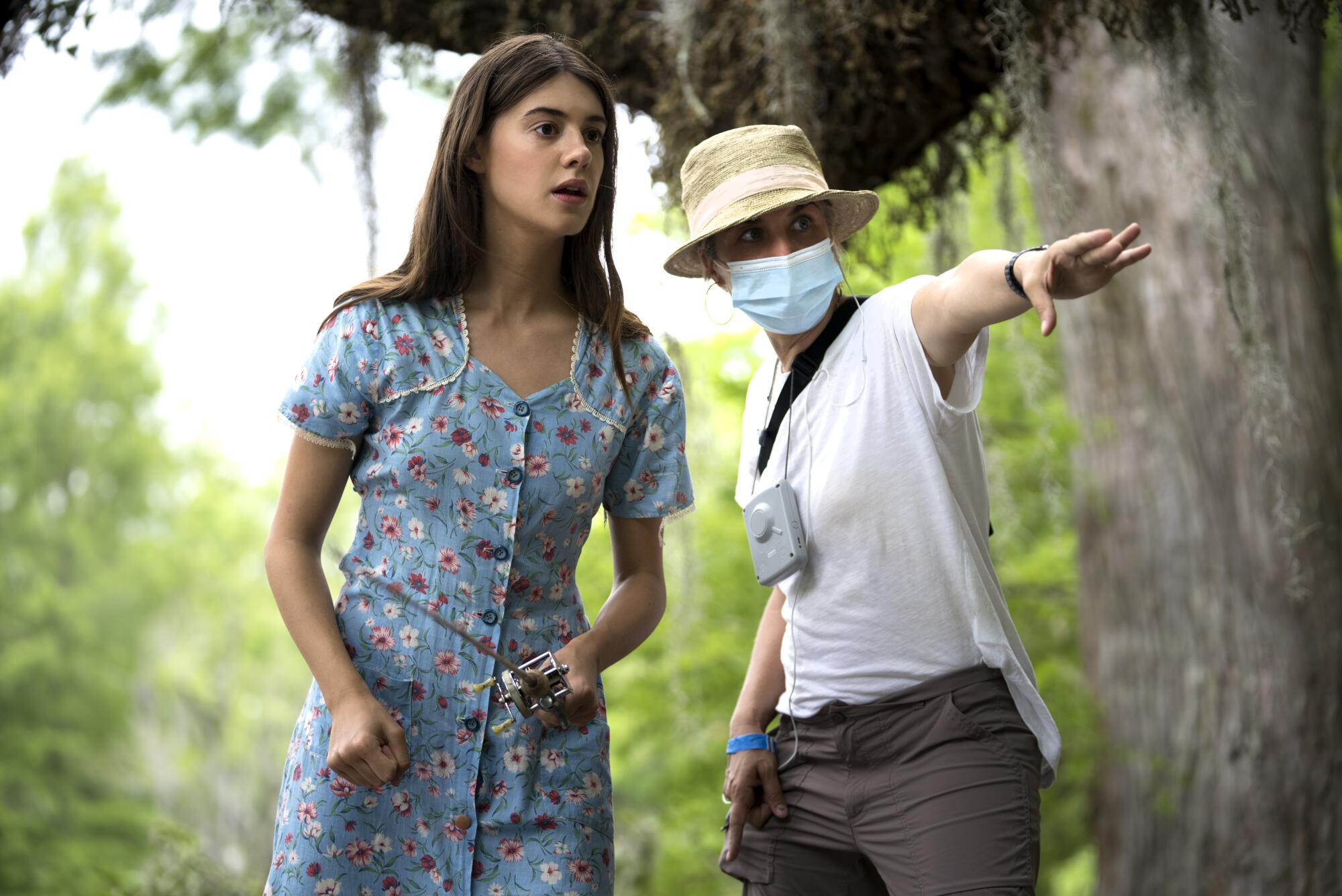
“We consider our authors our partners,” she says. “It’s very, very important to us that we collaborate with them as much as they want to be collaborated with. Angie Thomas on ‘The Hate U Give’ was on the set almost every day.” In contrast, Gabler points to Ishiguro, who told the producers, “I did my thing, you do yours.”
Who keeps the adaptation pipeline churning? These 8 agents, managers, scouts and producers are among Hollywood’s top conduits from book to screen.
It’s hard to know if other studios and publishers have relationships deep enough to take a page from Gabler and replicate 3000 Pictures’ model. At this point, Paramount Global still owns potential resource Simon & Schuster, but Paramount Pictures seems more interested in making franchise fare. As Witherspoon’s Hello Sunshine has shown, Hollywood tastemaker brands can also wield immense influence in publishing.
Can such cooperation help get more human stories greenlighted in an industry landscape increasingly ruled by safe-bet superhero films? Can it bring not only Owens-type authors but more Ishiguros to the screen? There’s plenty of room to grow. Witherspoon’s club chooses literary titles with its every 10th pick or so, including books by Edwidge Danticat and Ann Patchett. Perhaps in the future Witherspoon might challenge her audience with more of these, even if she continues to market them with skin care products and rosé. For now, her followers and other “Crawdads” readers should provide 3000 Pictures with a strong commercial launch. The rest is up to Gabler and her colleagues at the forefront of the book-to-film complex.
More to Read
Sign up for our Book Club newsletter
Get the latest news, events and more from the Los Angeles Times Book Club, and help us get L.A. reading and talking.
You may occasionally receive promotional content from the Los Angeles Times.

